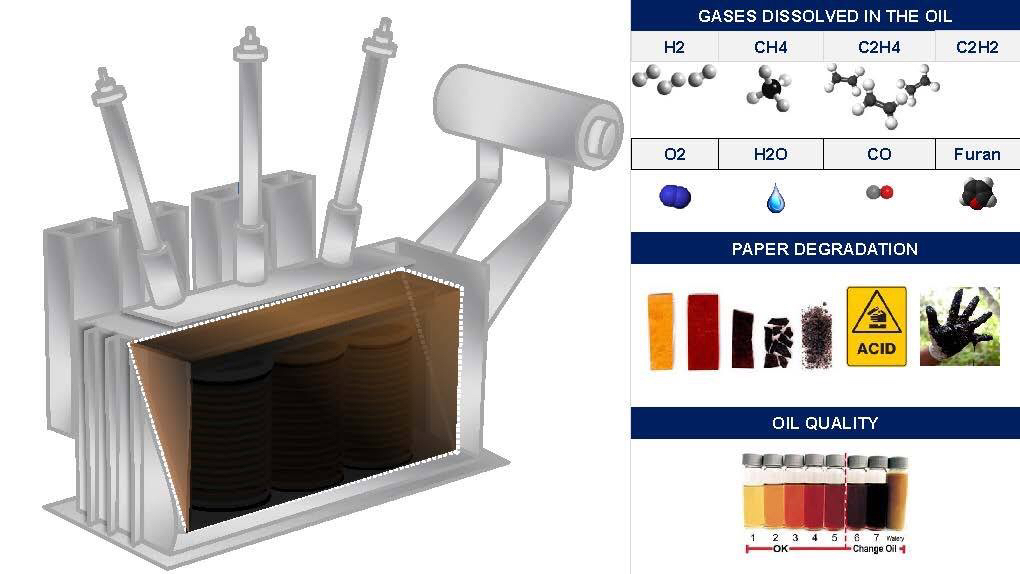Top Benefits of Using Reclaimed Transformer Oil in Power Equipments
Why Regenerated Transformer Oil Is Necessary for Reliable Power Equipments
The critical function of regenerated transformer oil in guaranteeing the integrity of power systems can not be overemphasized. By restoring the oil's inherent chemical and physical residential or commercial properties, the regrowth process dramatically improves its dielectric toughness and thermal performance.
Relevance of Transformer Oil
Transformer oil plays a crucial duty in the effective procedure of electric transformers. This specialized oil offers numerous functions, primarily as an insulator and coolant, ensuring the secure and trustworthy efficiency of transformer systems. Its dielectric residential properties stop electrical discharges, thus guarding the stability of transformer components. By offering thermal conductivity, transformer oil dissipates warm generated during electric procedure, which is necessary for preserving optimal operating temperatures and lengthening the life expectancy of the devices.
Moreover, transformer oil acts as a barrier against moisture and air, which can lead to oxidation and degradation of transformer materials. The presence of contaminants in the oil can substantially harm its shielding residential or commercial properties, resulting in operational ineffectiveness and prospective equipment failure. Regular tracking and upkeep of transformer oil are consequently crucial to ensuring the continued efficiency of transformers.
The quality and structure of transformer oil are vital, as they straight impact the dependability and performance of the electrical systems in which they operate. Comprehending the value of transformer oil is necessary for sectors and energies reliant on durable power framework, emphasizing the requirement for efficient management and regrowth procedures to keep oil stability gradually.
Advantages of Regrowth Refine

Moreover, the regrowth procedure mitigates the deterioration of oil, which can cause increased oxidation and acid formation. This not only boosts the reliability of the oil however additionally reduces the threat of transformer failures as a result of insulation malfunction. The enhanced high quality of regenerated oil permits transformers to run at ideal levels, inevitably causing improved power performance and decreased functional prices.
Furthermore, the regeneration process contributes to keeping the general wellness of the power system. Transformers can run much longer without the demand for oil replacement, thus reducing downtime and upkeep efforts. In summary, the regeneration procedure gives substantial advantages by boosting the longevity and performance of transformer oil, making certain that power systems operate reliably and successfully gradually.
Environmental Effect and Sustainability
The regrowth process of transformer oil dramatically reduces environmental concerns connected with oil disposal and waste monitoring. Typical disposal methods for made use of transformer oil posture significant dangers, including dirt contamination and water air pollution. By regrowing oil, these risks are significantly decreased, as the process reuses existing resources instead of adding to lose accumulation.
Additionally, regenerated transformer oil can be reused in different applications, which promotes a round economic situation. This not just lessens the requirement for virgin oil extraction-- a process that can be environmentally damaging-- yet likewise conserves all-natural resources. The regrowth procedure itself employs innovative filtering and filtration methods that remove unsafe pollutants, ensuring that the last item meets or goes beyond sector standards for efficiency and safety.

Enhancing Transformer Performance
Substantial improvements in transformer performance can be attained via making use of regenerated transformer oil. This oil, produced via innovative filtration processes, considerably enhances the electrical insulation properties of transformers. By getting rid of pollutants and impurities that generally endanger performance, regrowed oil makes sure superior dielectric toughness, reducing the danger of electric failings.
Furthermore, regenerated transformer oil shows boosted thermal conductivity, which helps with reliable warmth dissipation. This characteristic is critical for preserving optimum operating temperature levels, thus lengthening the lifespan of transformers and minimizing the likelihood of getting too hot - Transformer Oil Regeneration Process. Enhanced thermal administration also contributes to the general reliability of power systems
Furthermore, the chemical security of regenerated oil avoids the formation of corrosive acids and sludge, which can adversely influence transformer components. By keeping a cleaner interior atmosphere, this oil decreases maintenance needs and extends solution intervals.
Cost-Effectiveness and Effectiveness
In regards to cost-effectiveness and performance, regenerated transformer oil presents a compelling choice to conventional oils. The regeneration procedure not only eliminates contaminants yet also restores the oil's initial properties, web link expanding its useful life-span. This durability equates right into decreased regularity of oil replacement, therefore reducing operational expenses with time.
Moreover, making use of restored oil can dramatically diminish energy losses connected with inefficient shielding liquids. Its superior dielectric homes make sure optimal efficiency, boosting the dependability of power systems. Therefore, organizations gain from lower maintenance costs and reduced downtime, fostering an extra efficient operational atmosphere.

Conclusion
To conclude, the regeneration of transformer oil plays a crucial duty in making sure the dependability and efficiency of power systems. By recovering the vital chemical and physical properties of the oil, this process boosts dielectric toughness and thermal conductivity, eventually reducing the danger of insulation failure. The environmental advantages linked with recycling sources contribute to sustainability initiatives, while cost-effectiveness and enhanced efficiency highlight the necessity of using regenerated transformer oil in modern electrical framework.
Transformer oil plays a crucial function in the effective operation of electric transformers. Routine surveillance and maintenance of transformer oil are for that reason essential to making sure the continued performance of transformers.
The regrowth process of transformer oil dramatically reduces environmental worries connected with oil disposal and waste management. By prolonging the lifecycle of transformer Extra resources oil, the energy and sources normally consumed in creating new oil are substantially lowered.Significant enhancements in transformer efficiency can be accomplished via the usage of regenerated transformer oil.